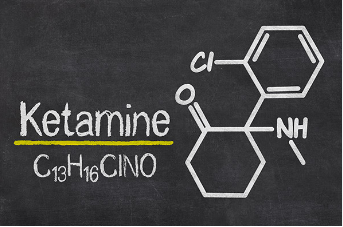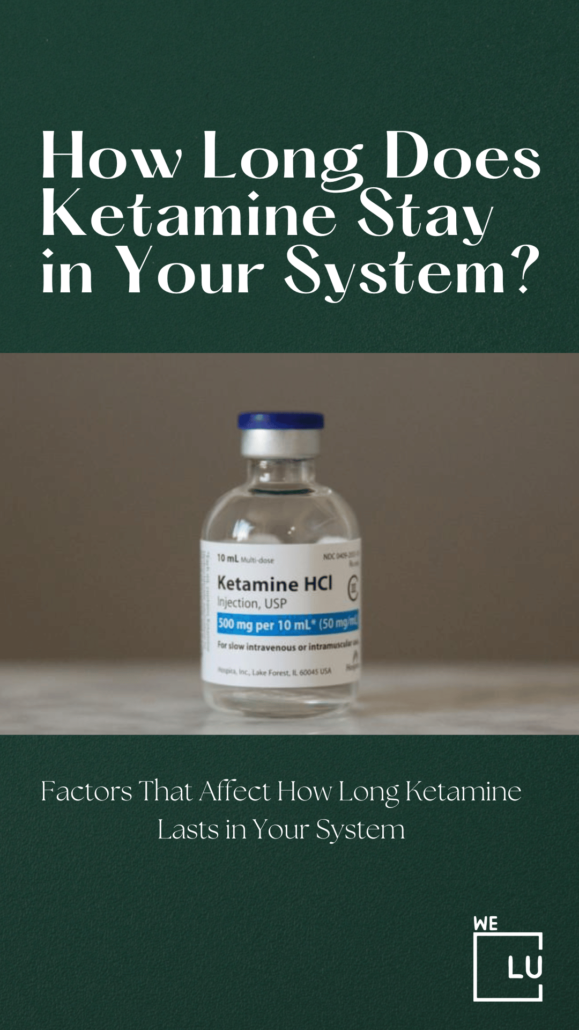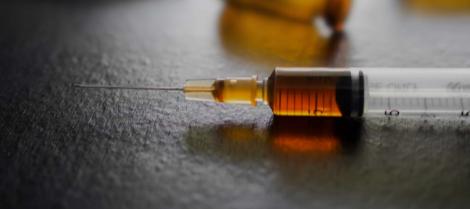How Long Does Ketamine Stay in Your System?
Ketamine puts the patient to sleep for surgery and prevents pain and discomfort during specific medical tests or procedures. It produces a trance-like state as well as sedation and pain relief. Many who have used this medication have wondered, “how long does ketamine stay in your system?” If you take any medication, understanding its duration can help you stay safe from intoxication and negative drug interactions.
Is Ketamine addictive? Yes, when taken in high doses over some time. According to the National Institute on Drug Abuse (NIDA), “There have been reports of people binging on ketamine, a behavior that is similar to that seen in some cocaine- or amphetamine-dependent individuals.” These signs do point to ketamine addiction, and they are more common in chronic users. While ketamine addiction may not be as challenging to overcome as other addictions, the dangers are still genuine, and the risks associated with ketamine addiction still come to haunt those who fall victim to this terrible disease.
How long can ketamine remain in your body, including your blood, urine, and saliva, after you’ve taken it? The half-life of ketamine is around 45 minutes. It takes five half-lives to eliminate a drug from your system, so in a healthy adult, the average elimination time for ketamine is about three hours and 45 minutes. This is an average, so everyone will be a little different regarding how long it takes their body to eliminate ketamine. However, it is essential to remember that ketamine can appear on a drug test for much longer.
Factors That Affect How Long Ketamine Lasts in Your System
Several factors can affect how long ketamine stays in your system.
Overall Health and Age
Young, healthy individuals can clear ketamine from their system faster than older individuals because their metabolisms are generally quicker.
Levels of Hydration
Most ketamine leaves the body in your urine, so if you’re well-hydrated and urinating more often, the ketamine will leave your body quicker.
Metabolism
Individuals with a faster metabolism can break down and eliminate drugs like ketamine faster than someone with a slower metabolism.
Liver and Kidney Function
Your liver and kidneys are responsible for removing ketamine from your system. However, if your liver or kidney function is impaired, it takes longer to get rid of the ketamine.
Body Mass
Having a higher body mass can mean you can metabolize ketamine quicker than someone with a smaller body mass. This is because the amount of ketamine you have taken represents a smaller proportion of your overall body mass. This means that those with higher body masses can get rid of ketamine more quickly.
Ketamine Dose
The higher the dose of ketamine, the harder your body will have to work to get rid of it and, therefore, the longer it will take.
How Frequently Ketamine is Taken
If you regularly abuse ketamine, you may consume another dose before the last one has left your system. This can cause a build-up in your body, meaning it takes longer to eliminate the drug.
Whether Ketamine is Mixed with Other Drugs
If you take ketamine alongside other drugs, this means that your body has to break down all of these substances together, which can make the process take longer.

Skip To:
- How Long Does Ketamine Stay in Your System?
- Factors That Affect How Long Ketamine Lasts in Your System
- Does Ketamine Show on Drug Test?
- Ketamine Addiction Statistics
- Ketamine Drug Fact Sheet
- How Long Does Ketamine Stay in Your System Urine Test? Ketamine Urine Test
- How Long Does Ketamine Stay in Your System? Ketamine Blood Test
- How Long Does Ketamine Stay in Your System? Ketamine Hair Test
- How Long Does Ketamine Stay in Your System? Ketamine Saliva Test
- What Does Ketamine Show Up as on a Drug Test?
- What is Ketamine Addiction?
- Dangers of Ketamine Addiction
- The Ketamine Comedown
- Can You Overdose on Ketamine?
- Treatment for Ketamine Addiction
Learn More:
Does Ketamine Show on Drug Test?
If you need to take a drug test and have used ketamine recently, you may wonder: will ketamine show up in a drug test? Standard drug tests don’t generally include ketamine, so, in all likelihood, it won’t make a difference if you’ve taken ketamine. In some cases, however, ketamine is screened for.
Does Ketamine show up in drug tests? Most employers (as well as government agencies) use a 5-panel drug test, which detects cannabis, PCP, cocaine, opiates, and amphetamines (meth and crystal meth). However, some places use a 10-panel drug test.
This tests for the same substances as the 5-panel but includes other substances like barbiturates and methadone. The 10-panel test is used to detect both illegal drugs and also prescription drugs that are frequently abused.
Does ketamine show on roadside drug tests? Ketamine is not included in the standard 5-panel or 10-panel drug screenings. However, a separate test specifically for ketamine can be ordered. This is usually only requested if ketamine abuse is suspected,
Does ketamine show up on a drug test? Ketamine can show up on drug tests. However, it is essential to note that ketamine is not part of a standard drug test. Nonetheless, doctors or employers can order specialty tests for ketamine if they suspect a person has been taking the drug. These tests are widely available and can check for the presence of ketamine in the system.
Get Help. Get Better. Get Your Life Back.
Searching for Accredited Drug & Alcohol Rehab Centers Near You? Or Mental Health Support?
Even if you have failed previously, relapsed, or are in a difficult crisis, we stand ready to support you. Our trusted behavioral health specialists will not give up on you. Call us when you feel ready or want someone to speak to about therapy alternatives to change your life. Even if we cannot assist you, we will lead you wherever you can get support. There is no obligation. Call our hotline today.
FREE Addiction Hotline – Call 24/7Ketamine Addiction Statistics
In 2019, the Food and Drug Administration (FDA) approved using a nasal spray version of the drug as a fast-acting option for treatment-resistant depression. An increase in recreational use and availability of ketamine in recent years—particularly in 2019, coincided with the drug’s FDA approval for depression. However, despite these increases, its use has remained relatively rare, with less than 1 percent of teens and adults using the drug. The highest prevalence of recreational ketamine use—0.9 percent—was reported in late 2019.
74 percent
According to the Department of Justice’s National Drug Intelligence Center, individuals aged 12 to 25 accounted for 74% of the Ketamine emergency department visits in the United States in the year 2000
Source: DEA
2.3 million
According to the 2013 National Survey on Drug Use and Health in the United States, an estimated 2.3 million people aged 12 or older used Ketamine in their lifetimes, with 203,000 users in 2013.
Source: NIH
3 percent
In 2006, the University of Michigan’s Monitoring the Future survey showed 3% of high school seniors had used the drug at least once that year.
Source: NIH
Ketamine Drug Fact Sheet
What is Ketamine?
Ketamine is a dissociative anesthetic that has some hallucinogenic effects. It distorts perceptions of sight and sound and makes the user feel disconnected and not in control. It is an injectable, short-acting anesthetic for use in humans and animals. It is referred to as a “dissociative anesthetic” because it makes patients feel detached from their pain and
environment.
What is its origin?
Ketamine is produced commercially in a number of countries, including the United States. Most of the ketamine illegally distributed in the United States is diverted or stolen from legitimate sources, particularly veterinary clinics, or smuggled into the United States from Mexico. Distribution of ketamine typically occurs among friends and acquaintances, most often at raves, nightclubs, and at private parties; street sales of ketamine are rare.
How is it abused?
Ketamine, along with the other “club drugs,” has become popular among teens and young adults at dance clubs and “raves.” Ketamine is manufactured commercially as a powder or liquid. Powdered ketamine is also formed from pharmaceutical ketamine by evaporating the liquid using hot plates, warming trays, or microwave ovens, a process that results in the formation of crystals, which are then ground into powder.
What are the common street names of Ketamine?
- Common street names include:
- Cat Tranquilizer
- Cat Valium
- Jet K
- Kit Kat
- Purple
- Special K
- Special La Coke
- Super Acid
- Super K
- Vitamin K
What does it look like?
Ketamine comes in a clear liquid and a white or off-white powder. Powdered ketamine (100 milligrams to 200 milligrams) is typically packaged in small glass vials, small plastic bags, and capsules as well as paper, glassine, or aluminum foil folds. Powdered ketamine is cut into lines known as bumps and snorted, or it is smoked, typically in marijuana or tobacco cigarettes. Liquid ketamine is injected or mixed into drinks. Ketamine is found by itself or often in combination with MDMA, amphetamine, methamphetamine, or cocaine.
What is its effect on the mind?
Ketamine produces hallucinations. It distorts perceptions of sight and sound and makes the user feel disconnected and not in control. A “Special K” trip is touted as better than that of LSD or PCP because its hallucinatory effects are relatively short in duration, lasting approximately 30 to 60 minutes as opposed to several hours.
What is its effect on the body?
A couple of minutes after taking the drug, the user may experience an increase in heart rate and blood pressure that gradually decreases over the next 10 to 20 minutes. Ketamine can make users unresponsive to stimuli.
What is its legal status in the United States?
Since the 1970s, ketamine has been marketed in the United States as an injectable, short-acting anesthetic for use in humans and animals. In 1999, ketamine, including its salts, isomers and salts of isomers, became a Schedule III non-narcotic substance under the Controlled Substances Act. It currently has accepted medical uses for short term sedation and anesthesia. In addition, in 2019, FDA approved the S(+) enantiomer of ketamine (esketamine) nasal spray version (Spravato®) for treatment-resistant depression that is only available at a certified doctor’s office or clinic. Ketamine has the potential for abuse, which may lead to moderate or low physical dependence or high psychological dependence

How Long Does Ketamine Stay in Your System Urine Test? Ketamine Urine Test
Does ketamine show in urine tests? A ketamine urine test can detect ketamine for up to two weeks. While most of the drug is out of your blood after the first day, its metabolites may be found in urine for much longer. Taking a urine sample is the most common form of drug testing for ketamine because it’s inexpensive, not invasive, and has a large detection window.
How Long Does Ketamine Stay in Your System? Ketamine Blood Test
Although ketamine can be detected in blood, blood tests for ketamine are uncommon. However, it takes ketamine about 2.5 hours to move from the bloodstream into the tissues of the body, which likely reflects the time it can be found in the blood. The ketamine test kit is a simple, fast, reliable, and accurate test that detects the presence of Ketamine (special k) in urine.
How Long Does Ketamine Stay in Your System? Ketamine Hair Test
Ketamine can be detected in hair up to four months after a single dose. Ketamine and its metabolites were also detected in scalp samples collected by a wet cotton swab up to 48 hours after administration of the drug. Hair tests may be used to determine if someone has been abusing ketamine over time.
How Long Does Ketamine Stay in Your System? Ketamine Saliva Test
A ketamine saliva test can detect the drug for 24 hours. Saliva tests aren’t often used for ketamine because they cost more than a urine test and have a small detection window.

Get Your Life Back
Find Hope & Recovery. Get Safe Comfortable Detox, Addiction Rehab & Mental Health Dual Diagnosis High-Quality Care at the We Level Up Treatment Centers Network.
Hotline (877) 378-4154What Does Ketamine Show Up as on a Drug Test?
Does ketamine show on drug tests? The simple answer is yes. Ketamine test kits can detect ketamine. How to test for ketamine? Oral fluid drug testing involves analyzing a sample of saliva. Ketamine can be seen in saliva by direct deposition in the mouth or transfer from the bloodstream following ingestion and absorption. The entire test. It takes just 20–30 minutes and involves placing an absorbent collector inside an individual’s mouth for a few minutes to soak up sufficient saliva. The period of detection of oral fluid testing is up to 48 hours after ingestion.
Do drug tests test for ketamine? Ketamine can show up on drug tests. However, it is important to note that ketamine is not part of a standard drug test. Ketamine is a hallucinogenic drug that can be detected between 1 day and 90 days via drug testing. The metabolites left behind in a person’s body from ketamine may remain for 4 to 5 days.
Why is a ketamine drug test needed? The misuse or abuse of ketamine can create dangerous work or home environments and strain personal relationships. This drug can lead to unnecessary accidents when abused due to its potential to induce paralysis, alter the individual’s perception, or cause the individual to hallucinate. Ketamine urine testing is more common since it is a fast, effective, and less expensive option, but it does look back on a shorter period (up to one week).
First-class Facilities & Amenities
World-class High-Quality Addiction & Mental Health Rehabilitation Treatment
Rehab Centers TourRenowned Addiction Centers. Serene Private Facilities. Inpatient rehab programs vary.
Addiction Helpline (877) 378-4154Proven recovery success experience, backed by a Team w/ History of:
15+
Years of Unified Experience
100s
5-Star Reviews Across Our Centers
10K
Recovery Success Stories Across Our Network
- Low Patient to Therapist Ratio
- Onsite Medical Detox Center
- Comprehensive Dual-Diagnosis Treatment
- Complimentary Family & Alumni Programs
- Coaching, Recovery & Personal Development Events
What is Ketamine Addiction?
Ketamine addiction is the psychological and physical tolerance that develops when a user takes this drug repeatedly. Such tolerance makes the user crave Ketamine, want more of the drug, and do more. This addiction can lead to various potential effects, including withdrawal symptoms, long-term side effects, permanent psychosis, or other problems. While most psychedelic drugs, such as Ketamine, are not widely considered addictive, this drug can cause severe dependence that requires professional treatment if the user decides to quit.
Most of the addiction itself is psychological when Ketamine is involved. For example, the user will think about the drug and have cravings, but these are not paired with severe physical side effects such as nausea or vomiting when the drug use stops. This is not to say that psychological dependence on Ketamine is easier to overcome than physical dependence because any drug dependence, either mental or physical in scope, is difficult to overcome and poses many challenges for the user.
Dangers of Ketamine Addiction
Many people mistakenly believe that Ketamine is not addictive because the drug is psychedelic, and psychedelics tend to be less habit-forming than other drugs. Unfortunately, there are many dangers associated with Ketamine addiction, and using this drug can lead to habitual behaviors associated with drug-seeking or drug cravings that commonly occur when the drug use stops.
Ketamine can cause respiratory failure, increased heartbeat, inability to function or understand one’s surroundings, or even coma. As addiction to Ketamine becomes more prevalent, the user will often resort to taking very large doses of the drug to produce the same “high” that they once enjoyed. As a result, Ketamine addiction often leads to overdose, which can have deadly consequences for the user.

World-class, Accredited, 5-Star Reviewed, Effective Addiction & Mental Health Programs. Complete Behavioral Health Inpatient Rehab, Detox plus Co-occuring Disorders Therapy.
CALL (877) 378-4154End the Addiction Pain. End the Emotional Rollercoaster. Get Your Life Back. Start Drug, Alcohol & Dual Diagnosis Mental Health Treatment Now. Get Free No-obligation Guidance by Substance Abuse Specialists Who Understand Addiction & Mental Health Recovery & Know How to Help.
The Ketamine Comedown
Even after using Ketamine for a brief period, there is a high probability that a user will experience what is called a “comedown.” The comedown is a drug-induced equivalent to a hangover and can be intense and dangerous. Since Ketamine is designed as a Sedative, users will likely experience intense confusion and delirium when the initial peak effects or “high” dissipate.
These individuals may also experience muscle weakness, anxiety, and feelings of hopelessness and helplessness. They may also experience numbness, impaired vision, and severe confusion that often leads to aggressive behavior, amnesia, and delirium. These symptoms are more likely to occur at higher doses of Ketamine, often via repeated use over many hours or when combining Ketamine with alcohol or other drugs.

Can You Overdose on Ketamine?
Ketamine is a powerful dissociative anesthetic that can make people detached from pain sensations and other environmental elements. Though pharmaceutical use in both human and veterinary medicine exists, there are many potential adverse effects of ketamine abuse, including the potential for dose-dependent toxicity or ketamine overdose.
Ketamine alters perception and coordination even at relatively low doses.
As ketamine doses increase, the person using may feel completely separated from reality or have a so-called “out of body” experience. Markedly unpleasant dissociative experiences are sometimes known as “near-death” experiences or the “K-Hole. Loss of consciousness can also happen at high doses.
High doses of ketamine can result in several health issues, including cardiovascular, respiratory, and neurological toxicity. Some of the wide-ranging adverse risks of ketamine abuse include the following:
- Elevated blood pressure
- Amnesia
- Breathing difficulties
- Problems with coordination and judgment
- Ulcerative cystitis
- Seizures
- Addiction
Death by ketamine overdose rarely happens if ketamine is the only drug someone takes. However, lethal toxicity may be more likely when someone combines ketamine with alcohol, as both substances impact respiration and cardiovascular functioning. Mixing alcohol with ketamine has also been linked to a risk for severe neurotoxicity.
Experience Transformative Recovery at the We Level Up Treatment Center.
See our authentic success stories. Get inspired. Get the help you deserve.



Start a New Life
Begin with a free call to an addiction & behavioral health treatment advisor. Learn more about our dual-diagnosis programs. The We Level Up treatment center network delivers various recovery programs at each treatment facility. Call to learn more.
- Personalized Care
- Caring Accountable Staff
- World-class Amenities
- Licensed & Accredited
- Renowned w/ 5-Star Reviews
We’ll Call You
Treatment for Ketamine Addiction
First and foremost, if you think a loved one is abusing ketamine, you should research the drug and its associated addiction to understand better what your loved one needs. Next, you must plan an intervention to provide your loved one with options to battle their addiction in a safe and supportive environment. During this intervention, offer compassion and support instead of judgment. Lastly, show your support throughout the entire Ketamine treatment process.
Clearing ketamine from the body and overcoming ketamine withdrawal symptoms is the goal of medical detox, which is the first step of ketamine addiction treatment for ketamine addiction. Here at We Level Up NJ, a comprehensive team prescribing medications as part of our medication-assisted treatment (MAT) program aims to alleviate your ketamine withdrawal pains while monitoring your health 24 hours during the detox. We prioritize your safety and comfort because this is a fragile and challenging time for you.
Once detox is complete, a new doorway in Ketamine addiction treatment opens up, which is referred to as an inpatient drug rehab or residential level of care. Our residential care program slowly and effectively introduces the individual into an atmosphere of therapeutic growth, marked by master’s level therapists, clinicians, group counselors, psychiatrists, and a community of like-minded individuals with the same aim: to attain sobriety and live a great life.
Some of the many modalities applied and practiced within our residential treatment facility are:
- Cognitive Behavioral Therapy
- Dialectical Behavioral Therapy
- 12-Step Groups
- Group Therapy
- Alumni Support Program
- Stabilization
- Holistic Therapy
Our Ketamine addiction treatment tailors the program to the individual and the individual to the recovery program. We begin by assessing our client’s history of mental health, drugs, and substance abuse-related past. The needs of each individual are specific and personalized because we aim to provide comprehensive support for mental health, addiction, and dual diagnosis treatment.
At We Level Up NJ, we prioritize removing the stigma and temptations for relapse and applying an air of recovery into every component of the treatment timeline. We find that clients living in a supportive community, especially during their early recovery process, can genuinely focus on what matters most: their recovery.

Search We Level Up NJ “How Long Does Ketamine Stay in Your System?” Topics & Resources
Sources
[1] Ketamine for the treatment of addiction: Evidence and potential mechanisms – PubMed (nih.gov)
[2] How ketamine relieves symptoms of depression | National Institutes of Health (NIH)
[3] On the safety of repeated ketamine infusions for the treatment of depression: Effects of sex and developmental periods – ketamine drug test PMC (nih.gov)
[4] Is Ketamine Addictive? How To Overcome Ketamine Addiction & ketamine drug test (welevelup.com)
[5] Drug Fact Sheet: Ketamine drug test (dea.gov)
[6] Ketamine: Current applications in anesthesia, pain, and critical care – PMC (nih.gov)
[7] Drug Abuse Warning Network, 2011: National Estimates of Drug-Related Emergency Department Visits ketamine drug test (samhsa.gov)
[8] Ketamine abuse potential and use disorder – ketamine drug test PubMed (nih.gov)
[9] Ketamine drug test and Toxicity – StatPearls – NCBI Bookshelf (nih.gov)